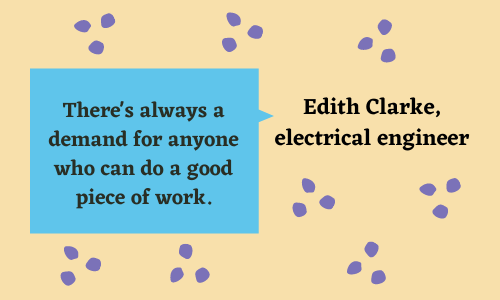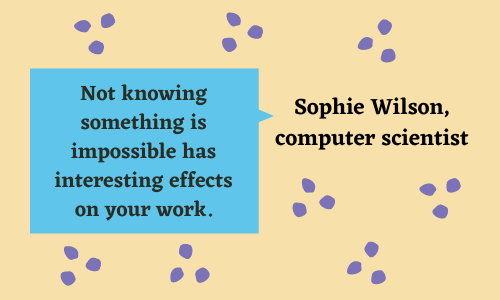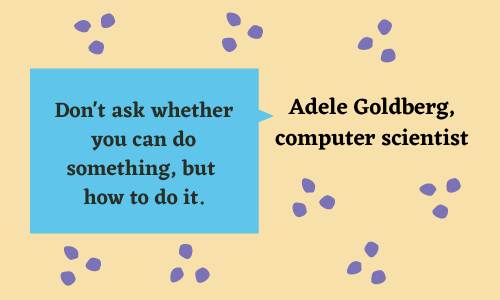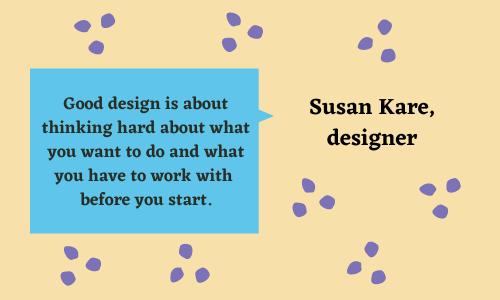We’ve written before about trailblazing women in tech like Katherine Johnson and Grace Hopper — who ran mathematical calculations for NASA and developed the COBOL programming language, respectively.
Modern consumer tech also has many women to thank: for innovations like the graphical user interface (GUI), Apple’s “skeuomorphic” icons, and some of the first software ever written.
This Women’s History Month, let’s express gratitude for these and other contributions by women pioneers in consumer tech.
“There’s always a demand for anyone who can do a good piece of work.” – Edith Clarke
When Edith Clarke was born in 1883, few women were employed in STEM. But that didn’t stop her wanting to work in the sciences.
After studying electrical engineering at MIT, Clarke became the first American woman employed as an electrical engineer — and later, the country’s first full-time female professor of electrical engineering.
In 1921, she patented a so-called graphical calculator for solving transmission problems in the electric grid. These early efforts at writing software “set the stage for electronic digital computers,” in the words of author James E. Brittain.
“The real existential challenge is to live up to your fullest potential.” – Fei-Fei Li
Artificial intelligence now contributes to decision-making in many fields, from self-driving cars to healthcare to cybersecurity.
As an early AI researcher, Fei-Fei Li pioneered the concept of training computers on giant data sets. Her ImageNet database, released in 2009, revolutionized both image recognition and the broader field of convolutional neural networks.
When your smartphone camera translates a street sign into text, Li’s efforts are what made it happen.
“Not knowing something is impossible has interesting effects on your work.” – Sophie Wilson
The planet’s billions of iPhone, iPad, and Android users owe Sophie Wilson a debt of gratitude.
Working as a computer scientist in the UK in the 1980s, Wilson crafted the key elements of some of the earliest consumer computers. The Acorn Micro-Computer, whose architecture she designed, sold millions of units in the UK. And the ARM microprocessor, for which she wrote the first instruction set, underpins all of today’s smartphones.
The Computer History Museum estimates that there are more than 30 billion ARM cores in use across the globe. Thirty billion hat-tips to Sophie Wilson are in order.
“Don’t ask whether you can do something, but how to do it.” – Adele Goldberg
We take for granted that our PC operating systems feature windows, menus, and a pointer. But before Adele Goldberg worked at Xerox PARC in the 1970s, computers were just, well, not that interactive.
Goldberg was a computer scientist on the team that developed the world’s first GUI: a visual “language” that forever altered how we interact with digital devices. At the time, it was called WIMP (windows, icons, menus, pointers).
As the story goes, Steve Jobs saw Goldberg’s efforts and was transfixed. He knew the GUI was the future.
“Good design is about thinking hard about what you want to do and what you have to work with before you start.” – Susan Kare
With a radically user-friendly approach, Apple Computer was poised to change the world in the 1980s. But first, it needed to actually make its software look good — and get the word out about what it was doing.
Early Apple employee Susan Kare was instrumental on both fronts. She designed typefaces, fonts, graphics, icons, and marketing materials for the first Mac computer, the Lisa. Some of her designs, like the Lasso, the Paint Bucket, and the Grabber, are still in use today.
Kare, a sculptor by training, is also responsible for the “pretzel” on Mac products’ Command key. It’s a shape used in Nordic countries to show the location of a campground on a map. The more you know…
Photo by LinkedIn Sales Solutions on Unsplash.







